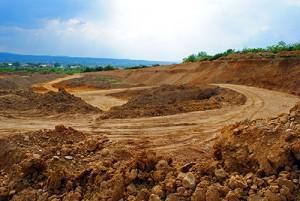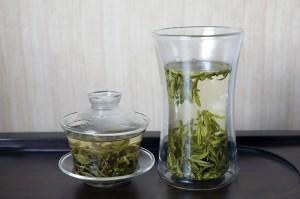“The effect of tea is cooling and as a beverage it is most suitable. It is especially fitting for persons of self-restraint and inner worth.”
-Lu Yu
During a hot day, it seems immensely gratifying to reach for a bottle of ice cold soda to cool down, but would it surprise you that a more effective way is to drink a cup of tea.
From a Traditional Chinese Medicine perspective, we often talk about ‘heatiness’ which is considered the cause of numerous ailments.
The fundamental basis of TCM remedy is restoring balance. If you’re too ‘heaty’ you need to ‘cool down’, if you’re too ‘cold’ you need something warming.
That’s why during a heat wave, ailments abound. But the surrounding heat is not the only cause. Diet is another.
For example, when you eat too much chips, do you feel your breath hotter? How about that ginger sliced venison hot-plate?
The TCM solution is the use of natural remedies. It can be herbal drinks like barley or water chestnut. It can be food such as cucumber or watermelon.

There is another more convenient and inexpensive solution, tea! Naturally, would you expect different on the site of a tea seller?
Not just another of tea though, different teas have different TCM natures.
In TCM context, the best teas for cooling down and dispelling the inner heat are green, white and yellow teas as these are cooling in nature.
For example, Ginseng Chicken soup is warming while watercress soup (Xiyang caitang) is cooling. You can observe the sensation in your body after you consumed both to experience the difference.
In older TCM texts the 20 benefits of tea (part I covered here) include the following:
i) 止渴生津- quells thirst and promotes body fluid production
ii) 清热解毒- clear heat and dispels toxins
iii) 利尿- promotes urination
止渴生津- quells thirst and promotes body fluid production
In the heat, our thirst is two pronged because of the loss of body fluids. TCM practitioners believe that ‘cooling’ teas quenches the thirst and promotes the production of body fluids. Especially dispelling the feeling of ‘dry-ness’ in the mouth.
Particularly for a cup of green tea, the brisk liquor and lingering huigan leaves a soothing sensation, rather than a drying aftertaste that most black teas bring about.
清热解毒- clear heat and dispels toxins

Green tea being un-oxidized and undergoing ‘shaqing’ from the start retains most of the original nature of the raw leaf and is considered the most cooling.
Hence it is particularly popular among Southern Chinese where the climate is more hot and humid as compared to the cool arid North China where scented teas and flowering teas are more commonplace.
One simple test is placing your hand in front of your nostrils. When you gorged on chips, you will find your breath is hotter. After drinking some green tea, you can compare the difference.
It is a dispelling of the inner body heat which is blamed for causing a myriad of ailments and banishes that general feeling of discomfort.
利尿- promotes urination
As any car owner knows, when the radiator pipe breaks, the engine will overheat. As water has a very high heat capacity, it is the perfect coolant for the engine.
So it is with our body. When we are hot, we drink copious amounts of water, allowing much of the heat to be absorbed without increasing much in temperature.
As the caffeine content in tea is diuretic, it promotes frequent urination which then helps the body dispel the heat naturally. In TCM nomenclature, it helps get rid of the ‘evil dampness’.
Hot or Iced?
TCM practitioners virtually unilaterally frown on iced drinks, particularly for one that is cooling in nature as it is considered damaging to the stomach. (You can read more on bad tea consumptions here)
That’s not the only argument for hot drinks though. One common remedy in TCM for fever is the counter-intuitive measure of increasing one’s body temperature to induce perspiration. The perspiration causes a drop in the body temperature that cures the fever.
Such is the argument for cooling down with a hot cup of tea. You can read more about this research here though it adds the caveat that the environment must be conducive to perspiration- i.e. drier climates.
So the next time a heat wave hits, don’t reach for ice-cold soda, make yourself a hot cup of green, white or yellow tea.
Disclaimer:
We are not trained TCM practitioners and information was researched from the following publications which you can obtain further reading from:
i) 中国茶与养生保健 (山东科学技术出版社)by 朱永兴,张友迥,黄永生
ii) 茶医学研究 (浙江大学出版社)by 朱永兴,王岳飞
iii) 这样喝茶最健康 (广西科学技术出版社)by 丁辛军,毕晓峰,张莉
iv) Warming and Cooling Characteristics of Common Foods (www.pingminghealth.com)
v) Health Benefits of Green Tea (www.shennong.com)
See here for more articles related to tea and health
